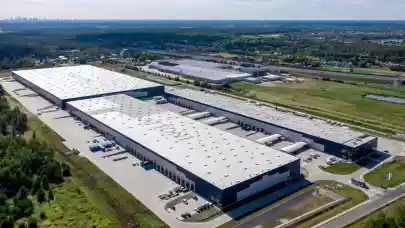
COVID-19’s direct impact on ongoing construction activity in Romania has been minimal since no restrictions were in place specifically targeting construction works. Several indirect factors, however, are expected to limit the amount of construction activity. The Eastern European Construction Forecasting Association has published a COVID-19 update on the construction sector of Romania.
EECFA (Eastern European Construction Forecasting Association) is conducting research on the construction markets of 8 Eastern-European countries such as Bulgaria, Croatia, Romania, Russia, Serbia, Slovenia, Turkey and Ukraine.
Construction works
- While the lockdown significantly reduced the mobility of persons, it provided little restrictions in the range of work activities that could be done (dental work, non-emergency medical interventions, hospitality and in-house food service).
- As of the writing of this article, there have only been a few major construction works delayed and, anecdotally, some projects are in fact moving faster than scheduled, such as bridge and road construction, taking advantage of reduced traffic. DIY works are also reported to be ongoing, with furloughed workers from other industries taking advantage of the time at home to engage in renovation works, with a noted increase in online sales of DIY retailers.
Factors limiting the construction sector’s performance
The direct impact on the ongoing construction activity has been minimal since no restrictions were in place specifically targeting construction works. Recommendations regarding social distancing were given, but not mandated. Several indirect factors, however, were expected to limit the amount of construction activity:
- Initial concerns over construction material availability have been raised. However, as of yet, no major shortages have been reported. Some manufacturers noticed a reduction in direct sales to individuals, however, B2B material sales have continued at comparable levels and online sales have increased.
- Occasional worker shortages have been reported, as some workers have taken medical leave or used vacation days, especially in the early stages of the lockdown. Fortunately, no major shortages have been reported due to the infection.
- At the same time, other companies have had to let employees go, with 37,750 work contracts in construction having been terminated from the start of the emergency period as of 29th April.
- Lack of interest in investment is expected, especially in the hotel and restaurant segments, which will likely reduce demand in the current year. With slim chances of reopening for the summer season, tourism-related construction is expected to be postponed.
- Trends in office construction are also expected to change, with working from home on the rise and open office plans under scrutiny.
- Lack of public funding could have a major negative impact on construction activity once the initial blow of the pandemic passes. Many county governments and city halls have used a large portion of their investment funds for measures aimed at reducing the spread of the virus, and thus there remains little for projects like infrastructure development or renovation. On a national level, according to several governmental agencies, the public deficit is set to reach 6.7-7.3% of GDP in 2020 and economic growth is to be stunted, with a decline of at least 1.9-4.7% of GDP.
- Lack of private funding is also a major concern, with many companies losing significant resources and burning through their savings and credit lines.
- At the same time, more than 1 million Romanians have had their work contracts suspended and 270 thousand lost their jobs since the state of emergency was instated (as of 29th April) and thus their spending power would have been significantly diminished.
- Real estate transactions are showing signs of slowing down, with March 2020 seeing 4.6% fewer houses and 11.7% fewer apartments traded compared to the previous month. The market remained 8.5% more active than March 2019, however.
Anti-COVID-19 measures in construction
There are no specific measures announced, as of the time of writing this article, aimed at supporting construction. However, there are some measures that could, indirectly, help:
- The government is providing the resources to pay 75% of the initial wage for those with suspended contracts, helping public consumption remain afloat, with a positive impact on companies trying to retain qualified workers and maintain their cash-flow.
- A RON 15 billion program to support small and medium enterprises ("IMM Invest") was launched on 28th April, providing state-backed loans for investment and working capital.
- €750 million have been allotted from EU funding for Romania for supporting small and medium enterprises, with a further €300 million for assisting workers with suspended contracts.
- The government's economic recovery plan takes into account using infrastructure construction to boost the economy (which would increase the deficit even further). However, as of the writing of this article, no plan has been approved, and so the impact it would have cannot be assessed.
- The government backing of mortgage loans for first time homeowners is expected to continue into 2021, rebranded as "One family, one home”, which should help counter some of the negative effects on the residential market. Its impact on the market diminished in 2019, with regular loans becoming almost as affordable, but it comprises a large portion of the segment nonetheless since the programme covered 45% of all ongoing mortgage loans in March 2019.



